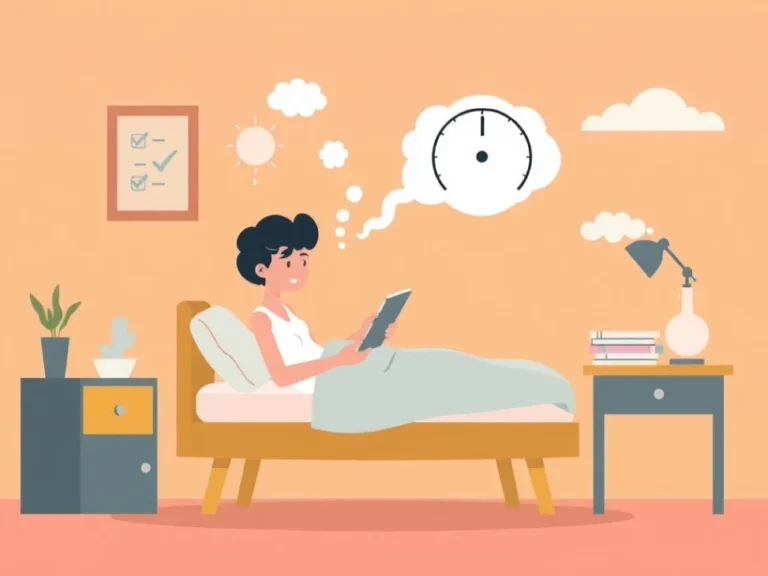The Connection Between Dreams and Mental Health

Dreams have long been a fascinating subject for people across cultures and throughout history. While the exact purpose and meaning of dreams remain somewhat mysterious, there is growing evidence that our dreams are closely connected to our mental health and overall well-being. In this blog post, we’ll explore the various ways in which dreams and mental health are intertwined, and how understanding this connection can help us lead healthier, more balanced lives.
What Are Dreams?
Before we dive into the relationship between dreams and mental health, let’s take a moment to define what we mean by “dreams.” Dreams are essentially a series of thoughts, images, and sensations that occur in our minds during sleep, particularly during the Rapid Eye Movement (REM) stage of sleep. Some key characteristics of dreams include:
- They can be vivid, surreal, or seemingly random
- They often evoke strong emotions
- They can incorporate elements of our waking lives, but often in strange or symbolic ways
- We tend to forget most of our dreams shortly after waking up
While the exact function of dreams is still debated, many experts believe they play important roles in memory consolidation, emotional regulation, and problem-solving.
The Link Between Dreams and Emotional Well-Being

One of the most significant ways in which dreams are connected to mental health is through their relationship with our emotional states. Research has shown that the content and emotional tone of our dreams often reflect our waking life experiences and feelings. For example:
- People who are going through stressful or traumatic events may have more frequent nightmares or anxiety dreams
- Individuals with depression may have dreams characterized by themes of loss, hopelessness, or low self-esteem
- Those who are generally happy and well-adjusted tend to have more positive dream content
Moreover, dreams can serve as a form of emotional processing and regulation https://dreamologyhub.com. During sleep, our brains are able to work through difficult or complex emotions in a safe, subconscious space. This can help us better manage stress, resolve conflicts, and maintain emotional equilibrium in our waking lives.
Dreams as a Window into Mental Health Conditions
In addition to reflecting our general emotional state, dreams can also provide valuable insights into specific mental health conditions. For instance:
- Posttraumatic Stress Disorder (PTSD): Individuals with PTSD often experience recurring nightmares that replay traumatic events or evoke similar feelings of fear, helplessness, or horror.
- Anxiety Disorders: People with anxiety may have dreams characterized by themes of being chased, trapped, or unprepared for a threatening situation.
- Bipolar Disorder: Those with bipolar disorder may have more vivid, intense, or bizarre dreams during manic episodes, and more negative or depressive dream content during low periods.
By paying attention to the content and themes of our dreams, we can gain a better understanding of our mental health and identify potential areas for growth or intervention.
Using Dreams for Personal Growth and Healing
Beyond simply reflecting our mental state, dreams can also be powerful tools for personal growth, self-discovery, and emotional healing. Many mental health professionals incorporate dream work into their therapeutic practices, using techniques such as:
- Dream Interpretation: Exploring the symbolic meanings and emotional resonance of dream content can provide valuable insights into the dreamer’s subconscious mind and inner world.
- Dream Journaling: Keeping a record of one’s dreams can help individuals track patterns, themes, and emotional states over time, as well as facilitate self-reflection and personal growth.
- Lucid Dreaming: Some people learn to become aware that they are dreaming while still asleep, allowing them to consciously explore and even control their dream experiences. This can be a powerful tool for confronting fears, practicing new skills, or promoting creative problem-solving.
By actively engaging with our dreams and integrating their lessons into our waking lives, we can harness their power for emotional healing, self-discovery, and overall mental wellness.
Promoting Healthy Sleep for Better Dreams
Given the close connection between dreams and mental health, it’s important to prioritize good sleep hygiene in order to promote more positive and productive dreaming. Some tips for optimizing your sleep and dream life include:
- Stick to a consistent sleep schedule: Try to go to bed and wake up at the same times each day, even on weekends.
- Create a relaxing bedtime routine: Engage in calming activities like reading, stretching, or meditation before bed to help signal to your body that it’s time to sleep.
- Avoid screens before bedtime: The blue light emitted by electronic devices can interfere with your natural sleep-wake cycle, so try to avoid screens for at least an hour before bed.
- Keep a dream journal by your bed: Having a notebook and pen handy can help you capture your dreams while they’re still fresh in your mind, making it easier to remember and work with them later.
By prioritizing good sleep hygiene and creating conditions conducive to healthy dreaming, we can enhance the positive impact of dreams on our mental health and overall well-being.
The Bottom Line
Dreams and mental health are deeply interconnected, with our dream life both reflecting and influencing our emotional state and psychological well-being. By paying attention to our dreams, working with them in therapeutic contexts, and taking steps to promote healthy sleep and dreaming habits, we can harness the power of dreams for personal growth, emotional healing, and greater self-understanding. So the next time you wake up from a particularly vivid or meaningful dream, take a moment to reflect on what it might be telling you about your mental health – and how you can use that insight to live a more balanced, fulfilling life.












